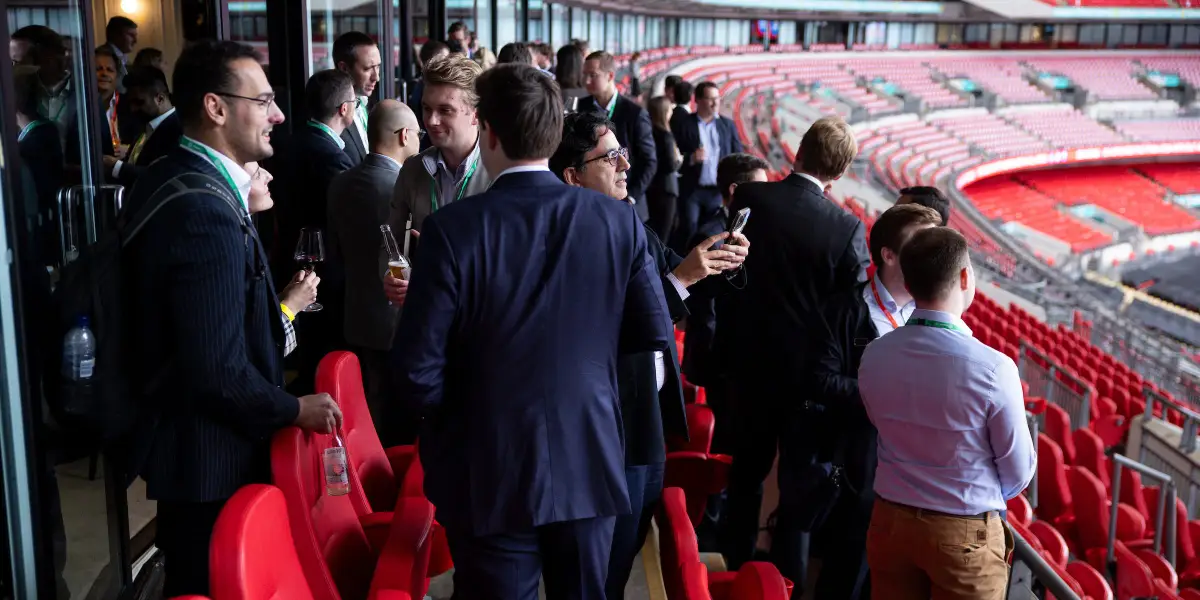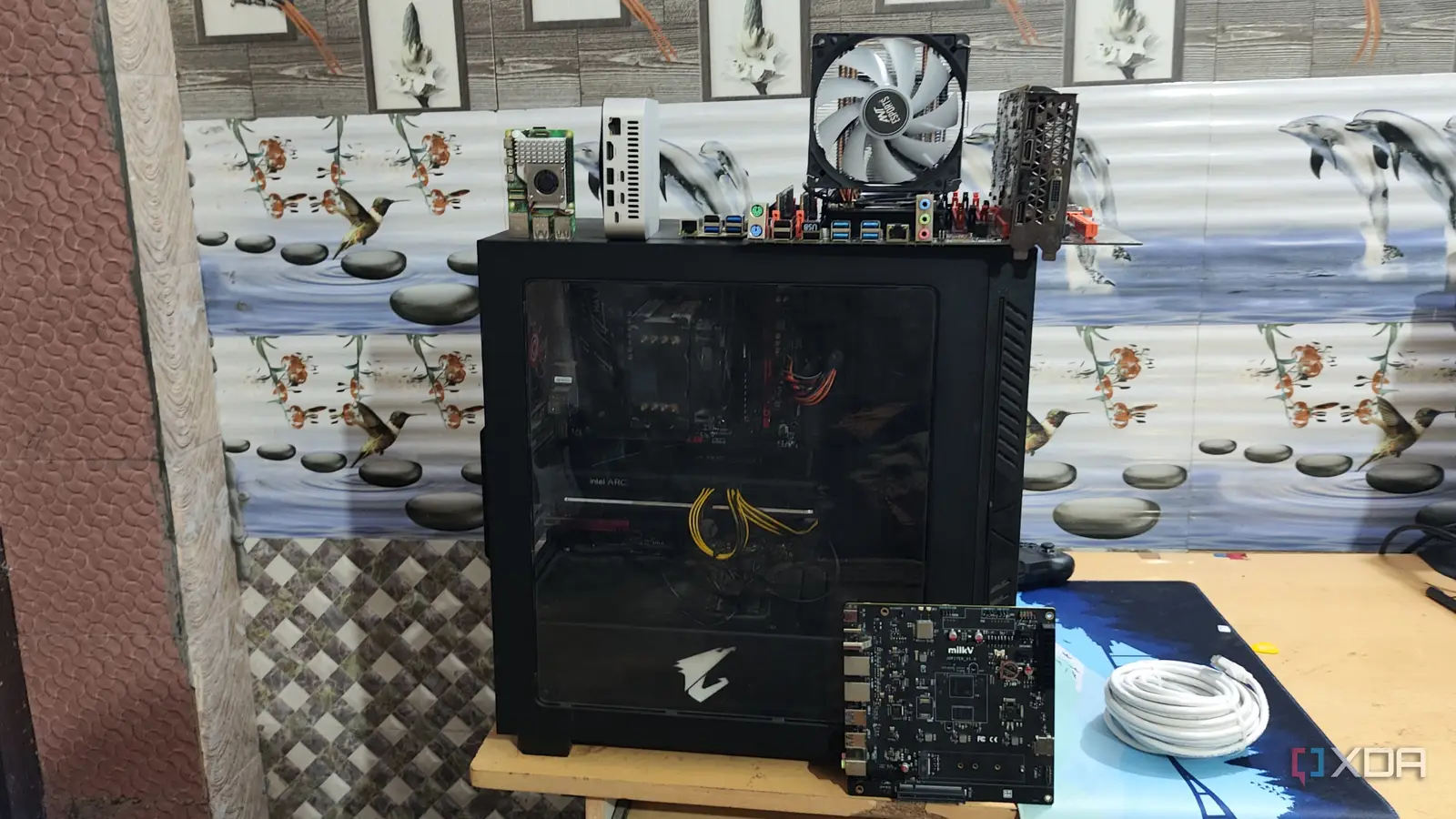
September brings cooler weather, weekends filled with football, and plenty of hedge fund conferences.
Last month, managers and allocators in the $4.7 trillion industry had many opportunities to compare notes and share gossip.
Events hosted by Goldman Sachs and industry consultant Kepler at Citi Field and Wembley Stadium, respectively, brought hedge fund managers and those who invest in them to sports venues. Meanwhile, Morgan Stanley and Citi held more low-key affairs in venues based in Greenwich and Manhattan.
Business Insider spoke with attendees of these industry events last month to get a sense of the on-the-ground sentiment. They spoke on the condition of anonymity because the conferences were closed to the press. Here’s what they said.
Allocators are worried about a shaky market
One manager who attended Morgan Stanley’s three-day event at the Greenwich Hyatt Regency in the middle of the month said allocators are concerned about a market pullback — but aren’t yet ready to ditch US stocks.
There’s a fear the party’s ending, “but no one wants to make the first move,” this person said. Over the conference, they met with dozens of allocators, including many institutional investors such as pensions and endowments.
“People are uncomfortably comfortable,” they said. This sentiment has been lingering for months now as US equities continue to tick up despite worries about President Donald Trump’s tariff policies slowing global trade. A survey released at the end of July found that nearly half of the dozens of institutional investors questioned believed markets were too complacent about tariffs.
What this means in practice is a search for managers that can perform in market downturns. Those with proven track records shorting stocks are in demand, two fund founders who attended the September conferences said.
Related stories
Business Insider tells the innovative stories you want to know
Business Insider tells the innovative stories you want to know
One person who attended Goldman Sachs’ event at Citi Field, the home of Major League Baseball’s New York Mets in Queens, said managers trading international stocks were of interest to big American allocators.
“There’s a continued interest to get away from the States, even though the market keeps chugging along,” this person said, of their takeaways from meeting with dozens of potential LPs.
A recent report from law firm Seward & Kissel found that more funds were including Trump’s trade deals and tariffs as potential risk factors in their regulatory filings.
The “highly uncertain global macro and regulatory environment” is having “a significant impact on the disclosures” funds are sharing with investors, the report reads.
A new fund from Bridgewater caught some eyes
At Kepler’s Wembley Stadium event, there were plenty of big-name managers speaking and meeting with allocators. Leda Braga, the founder of Systematica and a former BlueCrest executive, gave a fireside chat to start the event, and other quants, such as AQR and Paris-based Capital Fund Management, met with institutional investors.
A new offering from $98 billion Bridgewater Associates — a fixed-income fund for non-US investors meant to take advantage of “global divergences,” according to the fund’s fact sheet — is hoping to meet the uncertain moment for antsy allocators.
The fact sheet for the Absolute Return Fixed Income strategy said it trades bonds and currencies, and is attractive now because “higher interest rates on both the long and short end of the curve, positive real yields and term premiums, and market volatility have all returned.”
One Europe-based allocator who met with Bridgewater in a group setting with other institutions at the Kepler event told BI that it’s the type of product firms roll out when stock markets seem at their peak.
The factsheet said the strategy is up 6.8% since it started trading in March of this year through August. The manager simulated performance for the past two decades and states that the fund — which wants to have 65% of its assets in interest rates trades, 20% in credit bets, and the rest in currency plays — would have returned 9.4% in 2008 and 21.7% in 2022.
“AFRI is a fully liquid, fully alpha strategy targeting a net excess return of 5%+ a year at 10% volatility that is designed to have no structural exposure or correlation to markets or other managers over time,” the factsheet reads.
Multistrategy exhaustion, but still a demand for multistrategy-like returns
Multistrategy firms like Millennium, Citadel, and Point72 have come to dominate industry talk in recent years thanks to their unprecedented size and the unrelenting talent war that has allowed portfolio managers to sell their services to the highest bidder.
The increasing cost of these platforms — and the fact that the most coveted firms are closed to new investors — has soured the sector in the eyes of some allocators. The recent closure of Eisler Capital, due to high costs and low returns, may be an inflection point.
There is, however, still a demand for the market-neutral returns they provide.
It’s why new launches that spin out of these firms — from portfolio managers who have traded in the multistrategy style for years — have become some of the most sought-after funds, two different managers said.
“Allocators seem to crave low-net strategies,” said one manager who attended an emerging manager conference in New York put on by Citi. This individual, who met with different potential backers at the conference along with roughly a dozen other stockpicking funds, said interest was higher in investors with a multistrategy background than those with a more growth equity mindset, such as spin-offs from Tiger Cubs.
Allocators investing in these spin-outs often require managers to accept capital via a separately managed account, which allows allocators more transparency into the returns and strategy.
Younger managers refusing to take SMAs found their dance cards empty at these conferences, two people who attended the Citi and Morgan Stanley conferences said.
“You can’t raise money from institutions anymore without saying yes to SMAs,” one fund manager said.



